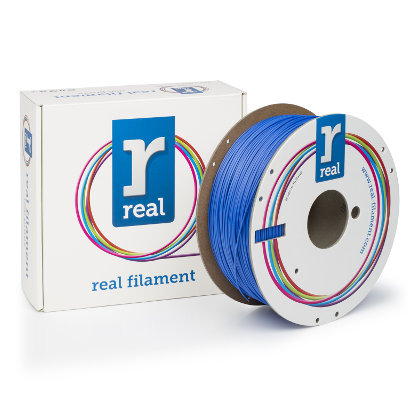Flexibel filament
Unique, pliable filament

Flex filament is our own, unique PLA-mix filament with flexible characteristics. We developed this hybrid filament because it has the flexibility of TPC but without the printing issues associated with elasticity. This means that the user has better control over the stiffness of the final print; flex is very flexible and strong for low density, thin walled objects, and becomes much stiffer once the density increases. The softness and fast temperature transition in the hot end make flex a very pleasant and easy material to work with. The material has better layer bonding and bed adhesion than almost any other material.
Diameter
| Diameter | Tolerance | Roundness |
|---|---|---|
| 1,75 mm | 0,05 mm | 95% |
| 2,85 mm | 0,1 mm | 95% |
Characteristics
| Physical characteristics | Test method | Typical value |
|---|---|---|
| Specific gravity | ISO 1183 | 1,27g/cc |
| MFI | - | - |
| Tensile strength | ISO 527 | 20 MPa |
| Elongation at break | ISO 527 | No break |
| Tensile modulus | ISO 527 | 730 MPa |
| Impact strength | - | 83KJ/m2 |
Thermal characteristics
| Description | Test method | Typical value |
|---|---|---|
| Print temperature | - | 190 - 220 C |
| Melt temperature | ISO 3146-C | 145 C +/- 10 C |
| Melting point | ASTM D3418 | 145-160 C |
| Vicat softening temperature | ISO 306 | +/- 78 C |
Packaging
All the filaments we sell are nicely boxed with usage and material properties printed directly on the inside cover, including the recommended print and heated bed temperature ranges. In addition, each spool is vacuum sealed with a moisture-reducing silicate bag to ensure filament longevity.
How to store the filament?
Filament quality and storage is one of the most important ingredient for beautiful prints. Many people focus strictly on the immediate appearance of a product and forget that a well-preserved spool is just as important. But is the biggest contribution to medium to long-term filament degradation? The answer is usually "moisture". Filament can't handle moisture very well and that is why we recommend storing your filament in a cool, dry environment, ideally in a package vacuum sealed with silicate.